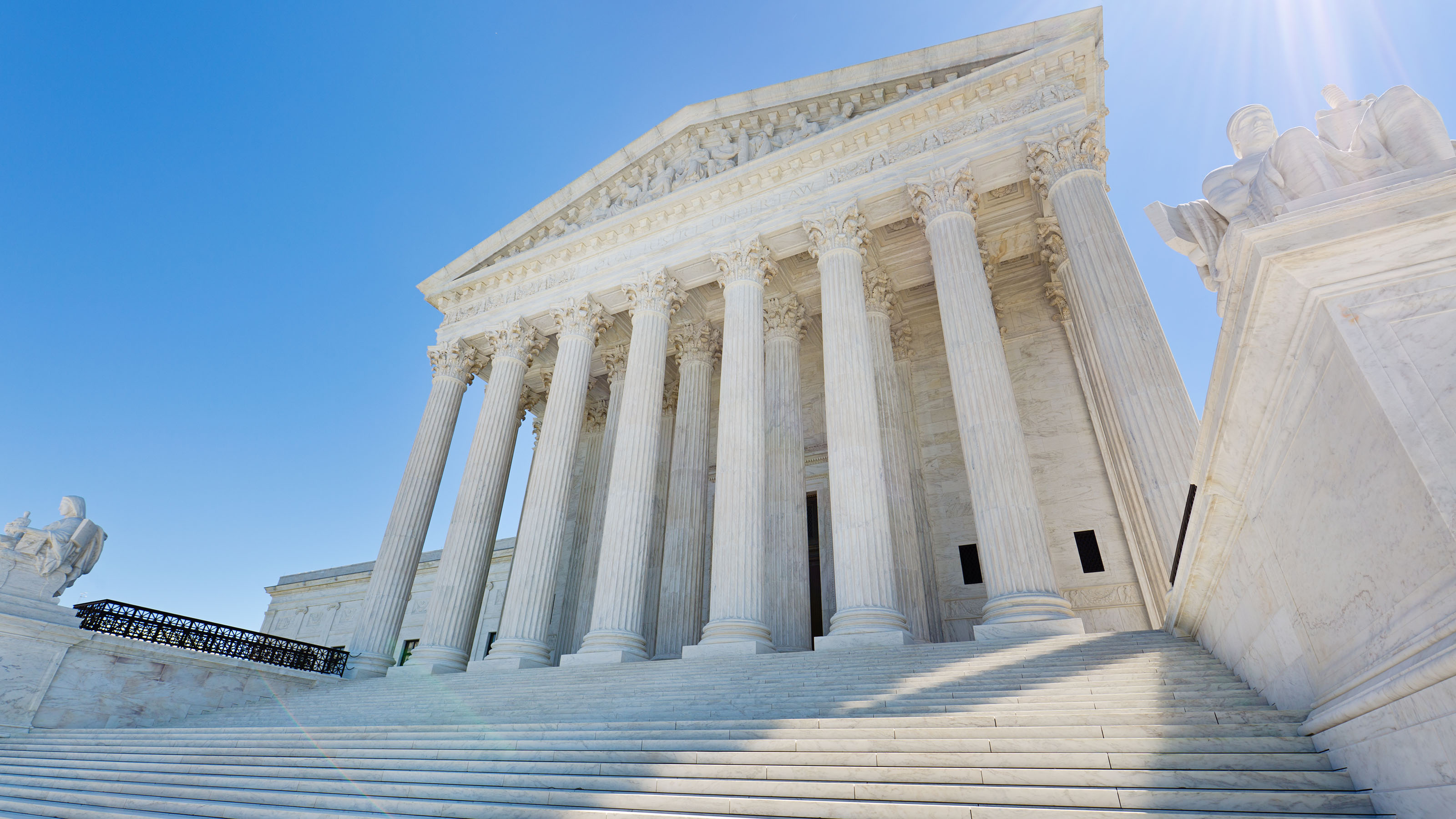Obama's "Failed" Presidency
Eighteen months into his first term, pundits and partisans are engaged in a shallow debate over how the president will be judged. They’re missing the point.

Profit and prosper with the best of Kiplinger's advice on investing, taxes, retirement, personal finance and much more. Delivered daily. Enter your email in the box and click Sign Me Up.
You are now subscribed
Your newsletter sign-up was successful
Want to add more newsletters?

Delivered daily
Kiplinger Today
Profit and prosper with the best of Kiplinger's advice on investing, taxes, retirement, personal finance and much more delivered daily. Smart money moves start here.

Sent five days a week
Kiplinger A Step Ahead
Get practical help to make better financial decisions in your everyday life, from spending to savings on top deals.

Delivered daily
Kiplinger Closing Bell
Get today's biggest financial and investing headlines delivered to your inbox every day the U.S. stock market is open.

Sent twice a week
Kiplinger Adviser Intel
Financial pros across the country share best practices and fresh tactics to preserve and grow your wealth.

Delivered weekly
Kiplinger Tax Tips
Trim your federal and state tax bills with practical tax-planning and tax-cutting strategies.

Sent twice a week
Kiplinger Retirement Tips
Your twice-a-week guide to planning and enjoying a financially secure and richly rewarding retirement

Sent bimonthly.
Kiplinger Adviser Angle
Insights for advisers, wealth managers and other financial professionals.

Sent twice a week
Kiplinger Investing Weekly
Your twice-a-week roundup of promising stocks, funds, companies and industries you should consider, ones you should avoid, and why.

Sent weekly for six weeks
Kiplinger Invest for Retirement
Your step-by-step six-part series on how to invest for retirement, from devising a successful strategy to exactly which investments to choose.
Call it the herd instinct, the echo chamber, a pack mentality, whatever -- there’s no denying that today’s 24/7 news cycle presents a big challenge for introducing intelligent political analysis and commentary into the public debate. We journalists and pundits spend way too much time reading and talking to each other, chasing the so-called narrative and trying to pick winners and losers in the Washington arena.
There’s a lot of that going on now, centered on how President Obama has pushed through Congress three landmark pieces of legislation -- an economic stimulus package, health care reform and an overhaul of financial regulation -- plus scores of other policy changes, yet is regarded by many as teetering on the edge of failure. The Washington Post and The New York Times went so far this past weekend as to ask dozens of so-called experts what the president can do to pull himself out of the ashes.
The real question, of course, is how you define failure. Obama promised and delivered a big stimulus, though it wasn’t as big as some wanted and was bigger than many thought we could afford. Almost all nonpartisan economists say it helped pull the economy out of recession and created jobs, but the vast majority of Americans don’t believe it for a minute.
From just $107.88 $24.99 for Kiplinger Personal Finance
Become a smarter, better informed investor. Subscribe from just $107.88 $24.99, plus get up to 4 Special Issues

Sign up for Kiplinger’s Free Newsletters
Profit and prosper with the best of expert advice on investing, taxes, retirement, personal finance and more - straight to your e-mail.
Profit and prosper with the best of expert advice - straight to your e-mail.
The TARP bailout -- passed under President Bush but now owned by Obama, who extended it with bailouts of GM, Chrysler and others -- is also seen as a success by economists but is absolutely hated by voters. In fact, a vote for TARP is proving a kiss of death for many Republicans and will be trouble in the fall for some Democrats.
Obama also promised health care reform and delivered a bill that his predecessors couldn’t. But liberals are unhappy that Obama abandoned the public option, conservatives see it as a government takeover and the public is understandably confused and will have to wait years to see if it works.
He also promised to withdraw U.S. troops from Iraq and to double down in Afghanistan, both of which he is doing -- to mixed success and to mixed reviews from those who elected him to do what he promised.
Today Obama signed into law a Wall Street regulatory bill designed to prevent another financial crisis or at least limit the damage from one. The bill’s failings will become clear in time. But the bigger political problem for him is that any success in curbing a crisis will never be known because you can’t prove a negative.
By any objective account, Obama has amassed a striking record of accomplishment -- one very close to what he promised during the campaign. Some pundits look at that and say the White House political operation must be the problem. It’s just not capable of getting the message out. No doubt, Obama and his aides have stumbled often, but that’s hardly the major problem.
The real reason for the talk of failure -- and the reason it’s real -- is that most Americans aren’t happy with the economy and they’re in no mood to judge anything else that’s happened a success. In some instances -- such as when they say the stimulus did more harm than good -- they are demonstrably incorrect. In others, they don’t like the growth of government and think doing nothing would have been better. Or else they think Obama’s priorities have been all wrong.
Americans are unhappy with Washington because the economy still looks like it is a mess. They don’t want to hear that it would have been worse otherwise or that it was all Bush’s fault. They want results -- more jobs and more prosperity and lower deficits. But no one can make that happen overnight. Certainly not Obama and certainly not Congress or Washington regulators. You can’t blame Obama if he finds it ironic that the very people who want the government to do a lot less complain that it hasn’t done more to solve their problems -- problems that most economists blame on private-sector greed and a lack of better government regulation.
So is Obama failing? If we judge by the public mood, by poll numbers, by the likelihood of big Democratic losses in the November elections, absolutely. If we judge by whether he’s lived up to what he promised in difficult circumstances, the answer is he’s doing quite well.
We’ll just have to wait and see. If the legislation and policy changes he’s implemented lead to a more stable economy and financial system, with more health care at prices society can afford, if the wars in Iraq and Afghanistan lead to an acceptable outcome, if his debt commission produces a sensible approach that is adopted despite the obvious pain it will cause, then we’ll eventually reward him with good grades. If not, there’ll be no shortage of F’s painted over his name.
Profit and prosper with the best of Kiplinger's advice on investing, taxes, retirement, personal finance and much more. Delivered daily. Enter your email in the box and click Sign Me Up.

-
 Betting on Super Bowl 2026? New IRS Tax Changes Could Cost You
Betting on Super Bowl 2026? New IRS Tax Changes Could Cost YouTaxable Income When Super Bowl LX hype fades, some fans may be surprised to learn that sports betting tax rules have shifted.
-
 How Much It Costs to Host a Super Bowl Party in 2026
How Much It Costs to Host a Super Bowl Party in 2026Hosting a Super Bowl party in 2026 could cost you. Here's a breakdown of food, drink and entertainment costs — plus ways to save.
-
 3 Reasons to Use a 5-Year CD As You Approach Retirement
3 Reasons to Use a 5-Year CD As You Approach RetirementA five-year CD can help you reach other milestones as you approach retirement.
-
 Is a New $25,000 Health Care Tax Deduction Coming in 2026?
Is a New $25,000 Health Care Tax Deduction Coming in 2026?Tax Policy A proposal from GOP Sen. Josh Hawley adds to the chatter about health care affordability.
-
 Money for Your Kids? Three Ways Trump's ‘Big Beautiful Bill’ Impacts Your Child's Finances
Money for Your Kids? Three Ways Trump's ‘Big Beautiful Bill’ Impacts Your Child's FinancesTax Tips The Trump tax bill could help your child with future education and homebuying costs. Here’s how.
-
 Key 2025 Tax Changes for Parents in Trump's Megabill
Key 2025 Tax Changes for Parents in Trump's MegabillTax Changes Are you a parent? The so-called ‘One Big Beautiful Bill’ (OBBB) impacts several key tax incentives that can affect your family this year and beyond.
-
 Will EVs Drive the Vote in Election 2024 Swing States?
Will EVs Drive the Vote in Election 2024 Swing States?Tax Credits Electric vehicle tax credits have somehow become controversial. So car buyer attitudes in swing states might make a difference.
-
 How Four Recent Supreme Court Rulings Impact Your Money
How Four Recent Supreme Court Rulings Impact Your MoneySupreme Court Some U.S. Supreme Court decisions could affect your finances. Here’s what you need to know.
-
 Are Student Loans Being Forgiven or Not?
Are Student Loans Being Forgiven or Not?Student Loans The House and Senate voted to repeal President Biden’s student loan forgiveness plan, but does it even matter?
-
 Etsy, eBay, PayPal Want IRS 1099-K Relief for Online Sellers
Etsy, eBay, PayPal Want IRS 1099-K Relief for Online SellersIncome Tax Companies like eBay, Etsy, and PayPal want Congress to raise the $600 reporting threshold for IRS Form 1099-K to give relief to millions of sellers who use their sites.
-
 Student Loan Forgiveness Blocked For Now Due to Court Rulings
Student Loan Forgiveness Blocked For Now Due to Court RulingsBiden's student loan debt forgiveness program is on hold until the U.S. Supreme Court weighs in.